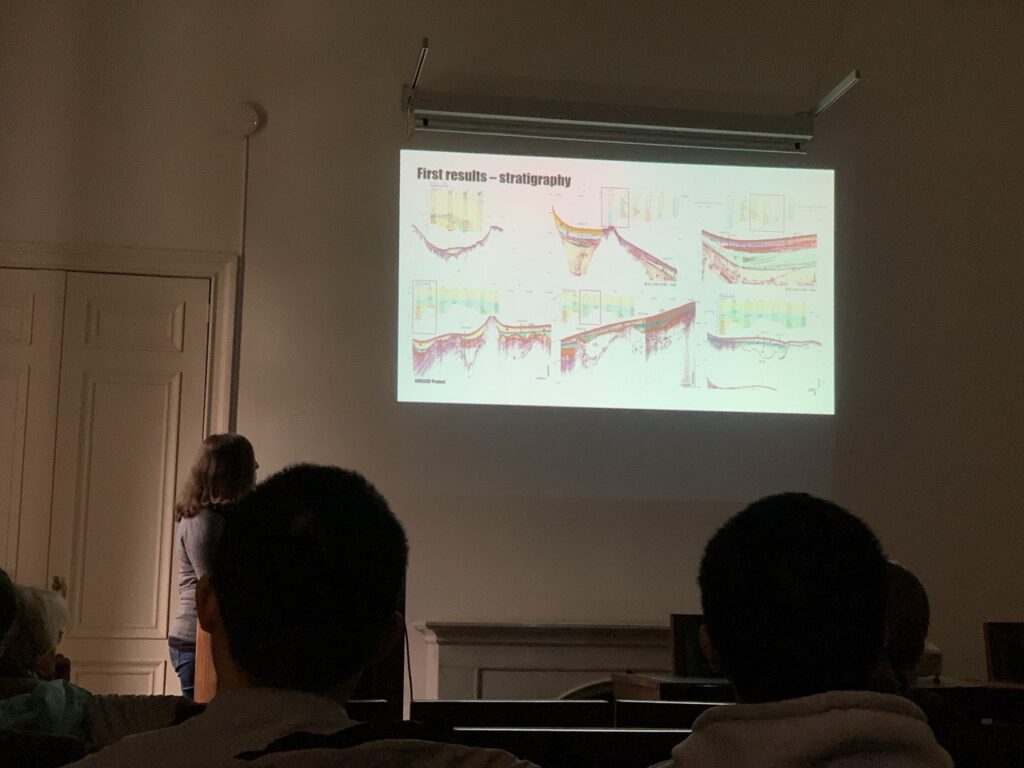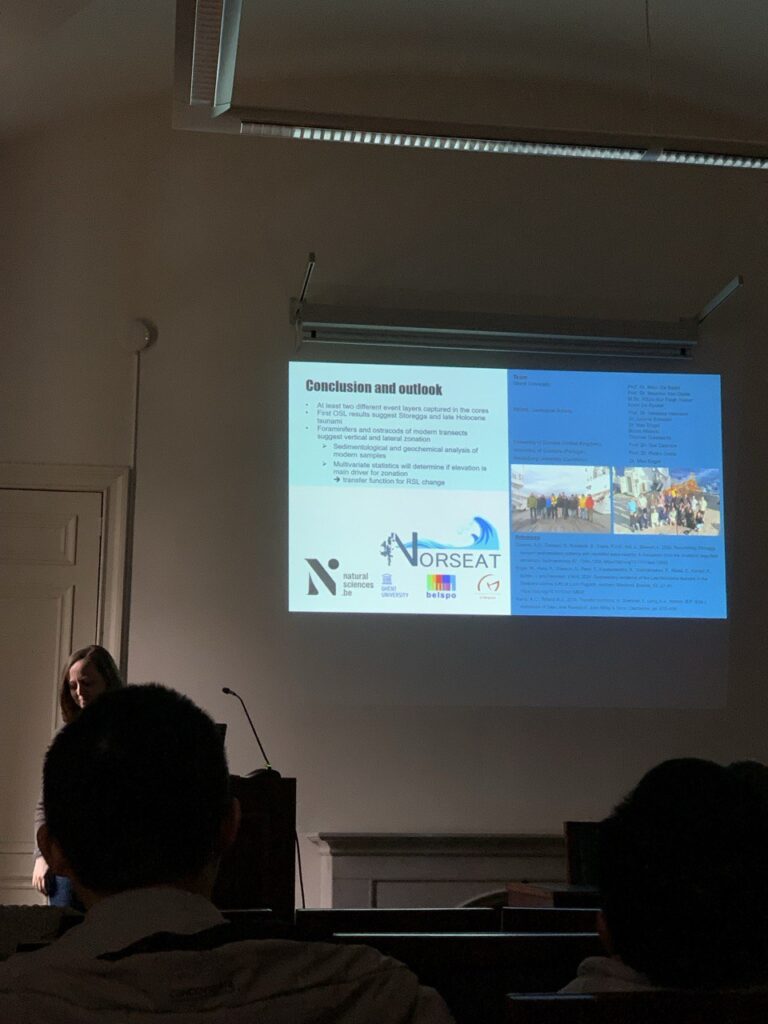On Tuesday, March 5, 2024, our team member, Dr. Juliane Scheder, delivered a compelling presentation at the BELQUA 2024 Annual Scientific Workshop in the Rubens Room of the Royal Academies for Science and the Arts of Belgium. The project, titled “Reconstructing Holocene relative sea-level changes and extreme events in the Shetland Islands (United Kingdom),” focused on addressing the limitations of existing Raising Sea Level (RSL) data, which covers two specific time frames (ca. 7900–5990 cal BP and around 3500 cal BP) with a notable vertical error (±8 m during the well-constrained Storegga tsunami period across the islands). Dr. Scheder outlined the methodology employed, emphasizing the utilization of a combined modern training set (foraminifers and ostracods) sourced from three salt marshes and adjacent tidal flats along the coast of Shetland’s largest island, Mainland. This approach aims to establish a robust RSL transfer function, correlating the elevation of surface samples to mean sea level based on modern microfaunal associations. The presentation shed light on the project’s preliminary results, offering a promising step forward in understanding Holocene sea-level changes and extreme events in the Shetland Islands.

